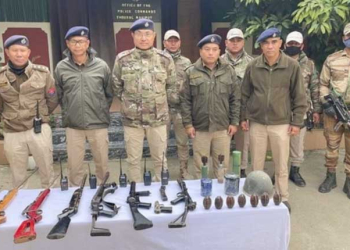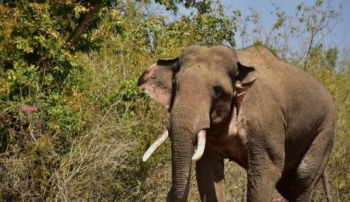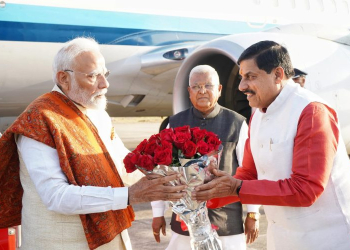New Delhi: The Gujarat government has told the Supreme Court that its 2003 law, which was strengthened in 2021, contained precautions to ensure that the process of renouncing one religion and adopting another is genuine, voluntary and bona fide.
The Gujarat government said the right to freedom of religion does not include a fundamental right to convert other people to a particular religion.
“The said right certainly does not include the right to convert an individual through fraud, deception, coercion, allurement or other such means,” it said.
“It is humbly submitted that that the Act of 2003 (Gujarat Freedom of Religion Act, 2003) is a validly constituted legislation, and more particularly, the provision of Section 5 of the Act of 2003, which is holding the field since last 18 years and thus is a valid provision of law so as to achieve the objective of the Act of 2003 and to maintain the public order within the state of Gujarat by protecting the cherished rights of vulnerable sections of the society, including women and economically and socially backward classes,” the Gujarat government said in a written response.
The state government said the Gujarat High Court “stayed the operation of Section 5 of the Act of 2003, which is in fact an enabling provision for a person to get converted from one religion to another religion on his own volition”.
The state government added that the provisions of the law were stayed by the high court orders on August 19, 2021 and August 26, 2021, even in cases where marriage is solemnised by a person of one religion with a person of another religion without force or by allurement or by fraudulent means.
It added that at the same time, the exercise of taking prior permission also obviates the forcible conversion and protects the “freedom of conscience” guaranteed to all the citizens of the country.
“It is submitted that the steps stipulated therein are the precautions to ensure that the process of renouncing one religion and adopting another religion is genuine, voluntary and bona fide and at the same time, free from any force, allurement, fraudulent means,” it said.
The state government’s response came on a plea filed by advocate Ashwini Kumar Upadhyay against fraudulent religious conversion and religious conversion by intimidation, threatening, deceivingly luring through gifts and monetary benefits, as it offends Articles 14, 21, and 25.
On November 14, the top court had said the matter of forced religious conversion is a “very serious issue” and violates citizens’ right to freedom of conscience and right to freely profess, practice and propagate religion.
The state government said the high court failed to appreciate that by staying the operation of Section 5 of the Act of 2003, the whole purpose of the Act effectively stands frustrated. It added that the Gujarat Freedom of Religion Act, 2021 was passed to strengthen the 2003 law.
(IANS)


















